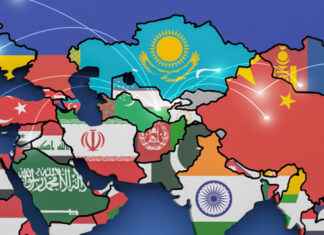Two or three cups of coffee – “alone, without sugar”, he confessed – is all Pedro Sánchez needs to become a person every morning. And he always drinks an iced coffee after lunch – “it doesn’t matter if it’s spring, summer, winter or autumn, I like a cold drink” – to overcome his exhausting days.
After breakfast, and the transfer from Moncloa to the studios of El món at RAC1 in Barcelona, ??the Prime Minister had his third cup of coffee yesterday with Jordi Basté. The last interview of the most listened to radio program in Catalonia with a head of the Spanish Executive was with the socialist José Luis Rodríguez Zapatero in 2010 in La Moncloa.
Accompanied by his chief of staff, Óscar López, and the Secretary of State for Communications, Francesc Vallès, Sánchez met early in the morning, at the broadcaster’s headquarters, with the CEO of the Godó Group, Carlos Godó ; the general director of Negoci Media of Grup Godó, Xavier de Pol, and the director of La Vanguardia, Jordi Juan. And then he faced Basté’s questions with a microphone and an open heart.
Without shying away from the most difficult questions posed by the journalist. Thus, he disassociated the action of Tsunami Democràtic, in the protests against the sentence of the 2019 trial, from the alleged crime of terrorism attributed to him by the judge in charge of this case, Manuel García-Castellón.
Sánchez avoided commenting on the open judicial investigation, “but I will say, from a more political point of view, that in this country, unfortunately, we have suffered two types of terrorism. ETA terrorism and jihadist terrorism, Barcelona has also suffered this pain. And I don’t think they are comparable”, he warned. “I don’t think they are comparable”, he stressed.
Faced with the imminent reunion with the president of the Generalitat, Pere Aragonès – first at the inauguration of the MareNostrum 5 supercomputer, and then at the bilateral meeting that the two held at the Palau -, Sánchez asked for “an exercise in pragmatism” from the ‘Catalan independence, beyond its “position of maxims”.
In order not to be anchored in the dispute for a self-determination referendum, which in his opinion “does not provide for the Constitution”, nor in the immobility that, in the face of the Catalan question, he attributes to the leader of the Popular Party, Alberto Núñez Feijóo.
“The answer to overcoming the political conflict cannot be a referendum on self-determination, nor can we stay as we are”, he defended. The third way that he presented to RAC1 consists of “reinforcing Catalonia’s self-government”, for the benefit of citizens. And he bet on “finding a space to advance in a new agreement that reinforces Catalonia’s self-government”. Also in terms of financing, he recalled, since the Statute already provides for the development of the Tax Agency.
Sánchez defended the amnesty law for those accused of the process, which will also “rehabilitate political actors who until now, seven years later, have been alien to the Spanish political dynamic”, with reference to former president Carles Puigdemont. And he wanted to “detract from the significance” of the future meetings he plans to hold with Puigdemont and also with Oriol Junqueras. “The logical thing is that it is after the amnesty law”, he alleged.
His last meeting with Puigdemont, as he recalled, was in the summer of 2017 in Girona, when he was not yet president: “We were chatting, we had a pleasant conversation”.








